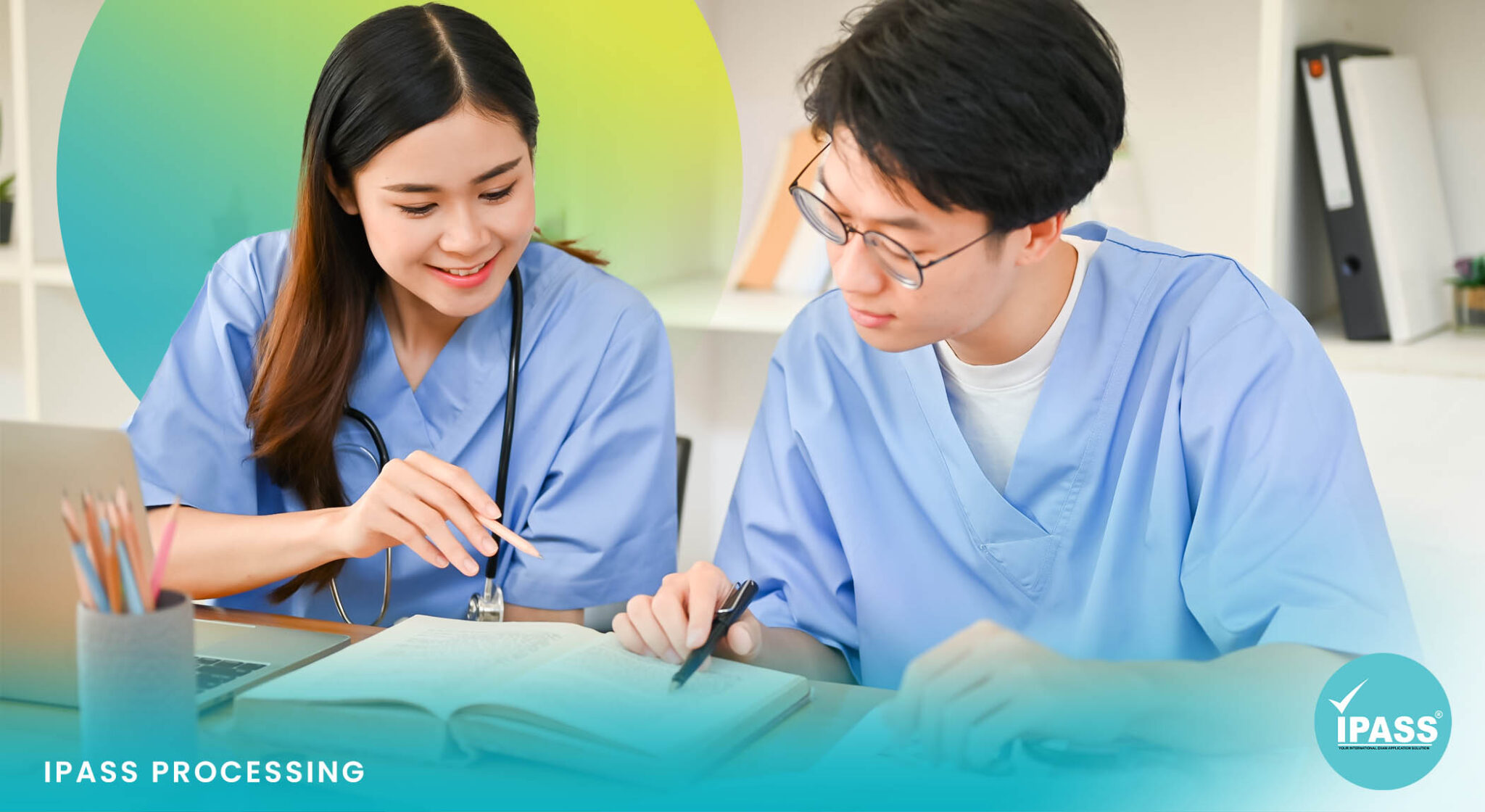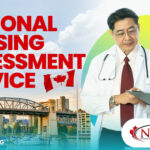Your cart is currently empty!

Final Push to Victory: Nailing the Philippine Nursing Board Exam
The Philippine Nursing Licensure Examination is a significant milestone for aspiring nurses in the country. Conducted by the Philippine Regulation Commission (PRC), it ensures future licensed nurses have the necessary skills for safe and proficient practice. Additionally, having a transparent assessment process is crucial for evaluating competencies effectively. Furthermore, this nursing board exam grants the privilege of working as a registered nurse only to the qualified individuals.
In the final week leading up to the nurse licensure exam, the pressure and anxiety tend to intensify. This crucial period demands examinees to uphold an exceptional level of composure. Thus, demonstrating unwavering calmness during this phase can significantly enhance your chances of successfully passing the examination. In this article, we will provide valuable tips for successful preparation and post-examination procedures.
Helpful Tips to Do One Week Before the Nursing Board Exam
Hopefully, you’ve been studying hard for the licensure exam for several months now. But what should you be focusing on in the last week before your exams? Here are the things you should be doing to prepare for your exams with one week to go:
Get Plenty of Sleep
The anxiety you get from the thought of the examination can hinder you from getting a good night’s sleep. However, it is vital to ensure that you get ample time to sleep. Lack of sleep impairs the brain’s ability to make crucial neuron connections, hindering the retention of studied material.
Moreover, lack of sleep reduces the chance for neurons to regenerate and rest. In addition to making you feel terrible, research indicates it negatively affects brain function. One week before the nursing board exam, ensure at least 8 hours of sleep daily. Furthermore, it is to make sure you are fully prepared for the examination day.
Eat a Balanced Meal Before Taking the Exam
Eat a balanced meal with carbs, proteins, and healthy fats before your exam. In addition, include whole grains, lean proteins, fruits, vegetables, and good fats like avocados and nuts.
Moreover, staying hydrated is also essential. Thus, drink enough water before and during the exam to help your brain function well. Proper nutrition and hydration provide the energy and nutrients your brain needs to perform at its best during the exam.
Do Light Exercises
Scientists are always coming up with new proof that exercise helps your brain. According to SciTechDaily, even moderate physical activity leads to a significant brain volume increase. As stated in their study, this is particularly true in the hippocampus, a region crucial for memory. Additionally, it also gives your brain a rest from all that study and relieves stress.
Remember to Take Breaks!
Balancing exam preparation can be challenging, but it’s crucial to acknowledge that taking breaks is essential. There are many tips to pass the board exam, but this may be the most important. Constant studying might prove counterproductive in the long run. So, ensure you incorporate breaks into your study schedule. These pauses are not just for your body’s benefit but are equally vital for your brain’s optimal functioning.
Prepare Your Exam Essentials a Day Before
It is also crucial that you prepare everything you need at least a day before the examination. It is to make sure you will remember everything that is required for the test so that you will have a seamless exam.
General Instructions to Remember Before Taking the Nursing Board Exam
Here are the general guidelines based on the official document released by PRC for November 2023 Nursing Board Exam:
Visit Your Assigned Examination Room Prior
The PRC advises the examinees to check and verify their room assignments beforehand. It is to ensure everything runs smoothly during the examination day and avoid delays and confusion.
You can do this by visiting the official website of the PRC or by checking the notices or announcements posted at the PRC premises. In addition, it is a good practice to check the examination venue two (2) to three (3) working days before your scheduled exam.
Be Early on the First Day of Examination
On the first day of the examination, report to the school or building assignment before 5:30 a.m. to verify your seat and room number. Punctuality is essential, as late examinees will not be allowed to enter.
Wear Proper Dress Code
On each examination day, examinees must adhere to the specified dress code. Outlined below are the PRC guidelines on what to wear in nursing board exam:
• Male Examinees: Examinees must wear clinical uniforms with white shoes and white socks, excluding any nameplate, school insignia/logo, or pin. Moreover, school uniforms are not permitted.
• Female Examinees: Examinees must wear clinical uniforms along with white shoes and white stockings, excluding any nameplate, school insignia/logo, or pin. Moreover, school uniforms are not permitted.
• Pregnant Female Examinees: White Clinical Scrub Suit
Make Sure to Bring the Necessary Items Needed for You Examination
On examination day, ensure you have the following items with you:
a. Notice of Admission
b. Official Receipt
c. Ball pens with BLACK ink only
d. One long brown envelope
e. Two or more pencils (No. 2)
f. One long transparent/plastic envelope (for storing your valuables and other permitted items)
Take Note of the Prohibited Items
The following items are STRICTLY PROHIBITED within the examination area:
a. Books, review materials, notes, and other printed materials containing coded data, information, or formulas are strictly prohibited.
b. Calculators that are programmable or with embedded functions, especially CASIO FX99IES and CASIO FX-99IES plus.
c. Smart watches (Samsung, Apple, etc.), Cellular Phones, Transmitters, Ear Plugs, Portable Computers, Bluetooth Devices, and other electronic devices are strictly prohibited. Using these devices to retrieve data, information, or communicate for any purpose is strictly prohibited within the examination premises.
d. Bags of any kind (sling bag, backpacks, attach case, etc.)
e. Additional nursing board exam aids not mentioned in this program. So, examinees must surrender all personal belongings to the proctor upon entering the examination room. Moreover, the proctor will securely store the items within the designated space during the exam.
Proctors or Room Watchers will strictly enforce the rules on bodily search and inspection of belongings during the licensure exam. These guidelines are outlined in Annex A of PRC Memorandum Order No. 57 (s. 2020).
Comply to the Minimum Public Health Standards
According to Joint Administrative Order No.01 (s. 2022), strict adherence to prescribed precautionary measures is mandatory during the nursing board exam. It will include, but not limited to:
1. All examinees and examination personnel shall enforce the following precautionary measures among themselves:
a. Limit their travel to a semi-bubble set up of home-testing venue-home;
b.Observe physical distancing of at least one (1) meter between and among examinees;
c. Restrict examinees to their assigned seats;
d. Wear a well-fitted face mask at all times;
e. Bring 70% ethyl alcohol for hand disinfection;
f. Avoid close contact (e.g., “beso-beso,” hugging, handshakes) and similar activities which directly involve touching other persons;
g. Avoid touching one’s eyes, nose, and mouth;
h. Observe cough and respiratory etiquette at all times and
i. Avoid spitting in public, on floors, and in corridors.
2. Examinees and exam personnel must bring their food and drinks to consume during breaks at their assigned seats. Furthermore, examinees may only remove face masks while eating or drinking.
3. Examinees are required to bring their pens, pencils, and erasers. Moreover, borrowing these items from a seatmate is strictly prohibited.
4. Loitering and unnecessary conversing in the hallways or the examination room are strictly prohibited.
5. Examinees shall strictly observe physical distancing in the queue while entering the testing venues;
6. Examinees shall proceed immediately to their designated examination rooms after the screening.
Additional Guidelines
During the nursing board exam, examinees must strictly observe the following:
a. Examination personnel and examinees must adhere to the Minimum Public Health Standards (MPHS) within the examination rooms. This will be strictly implemented, especially when test takers turn in answer sheets and test booklets. Room watchers and proctors will accommodate only one examinee at a time.
b. Examinees needing to use the restroom must be accompanied by a room watcher/proctor, ensuring the continuous observance of MPHS. Additionally, only one examinee can go to the restroom at a time. Furthermore, everyone must maintain proper hand hygiene.
c. Room watchers or proctors will inspect protective facemasks, handkerchiefs, or tissues before the start of each subject. And, if necessary, during the examination to prevent any attempt to conceal codes. Moreover, room watchers or proctors will conduct the inspection individually while the remaining examinees remain seated.
In addition to the above requirements, examinees must provide a copy of their complete vaccination proof. It is usually 1 or 2 doses, depending on the vaccine received, plus a booster, or based on the latest definition of “Fully Vaccinated.” Those who are not fully vaccinated may submit an RT-PCR test or Certificate of Completion of Isolation. Moreover, examinees will present this to the proctor on examination day.
If the examinee recently contracted COVID-19, a Certificate of Completion of Isolation or its equivalent signed by any of the following must be submitted:
• Licensed physicians (government or private) ;
• Provincial Health Officer, Municipal Health Officer, or City Health Officer;
• Designated Barangay Health Emergency Response Team (BHERTs) Officer or Barangay Health Worker visiting the residence of the examinee or examination personnel.
Examinees from other countries must quarantine following the latest quarantine and isolation protocols and guidelines in and around the time of examination.
Schedule for the Nursing Board Examination
Below is the 2-day exam schedule. Please adhere to it to prevent issues and delays before, during, and after the nursing board exam.
SATURDAY, NOV. 11, 2023
• 7:00 am – 7:45 am
General Instructions and Filling-out of Forms
• 8:00 am – 10:00 am
Nursing Practice I – Community Health Nursing
• 11:30 am – 1:30 pm
Nursing Practice II – Care of Healthy/At-Risk Mother and Child
• 2:30 pm – 4:30 pm
Nursing Practice III – Care of Clients with Physiologic and Psychosocial Alterations (Part A)
SUNDAY, NOV. 12, 2022
• 8:00 am – 10:00 am
Nursing Practice IV – Care of Clients with Physiologic and Psychosocial Alterations (Part B)
• 11:30 am – 1:30 pm
Nursing Practice V – Care of Clients with Physiologic and Psychosocial Alterations (Part C)
Post-Examination: What to Expect after the Nursing Board Exam
Upon completing the examination, it is natural to experience a mix of emotions. Regardless of the outcome, acknowledge your efforts and resilience. Objectively assess your performance once the nursing board exam results are announced. If successful, celebrate your achievement and prepare for the next steps in your nursing career.
In case of unfavorable results, view it as an opportunity to learn and grow. Seek feedback, identify areas of improvement, and consider further education or specialized training if necessary.
Final Thoughts
In conclusion, preparing for the Philippine Nursing Board Exam requires a holistic approach. It encompasses rigorous preparation, adherence to guidelines, and nurturing a resilient mindset. By combining diligent study habits, strategic exam techniques, and meticulous planning, you can embark on your nursing career confidently and competently.
Remember, success is not solely determined by the outcome but also by the journey of continuous learning and self-improvement. IPASS Processing wishes you all the best in the coming licensure examination, and we hope you achieve your nursing dreams! Stay focused, stay positive, and believe in yourself—you’ve got this!
Recommended Reads
- Top 10 Best States to Work as a Nurse
- The IPASS NCLEX-RN Online Review: Unlimited Until You Pass!
- The WES Application in the Philippine through IPASS Processing
- What You Need To Know About VisaScreen Application
- What is NNAS? The Ultimate Guide
Recommended Topics
- Australia (5)
- Canada (4)
- Exam Tips (30)
- General (119)
- IPASS Events (10)
- IPASS News (123)
- Middle East Nursing (16)
- NCLEX (58)
- New Zealand (3)
- Online Review (2)
- Tourist Visa (1)
- US Nursing (12)
- UWorld (1)
- VisaScreen (2)








Leave a Reply